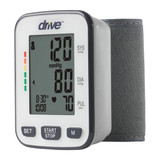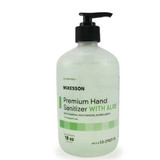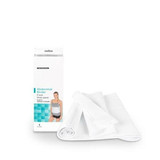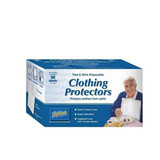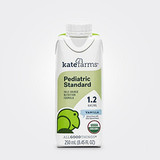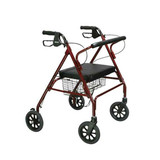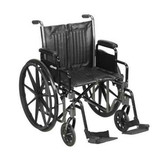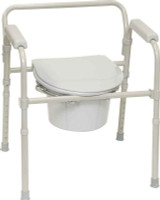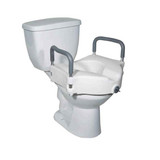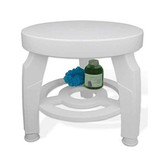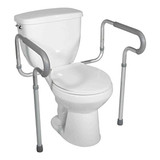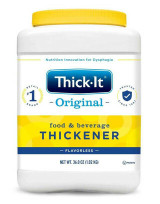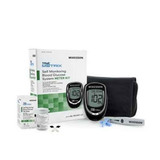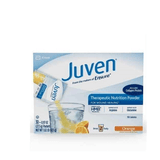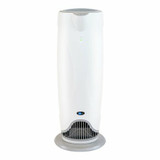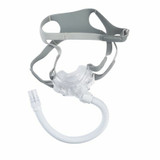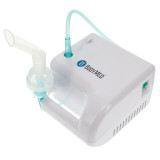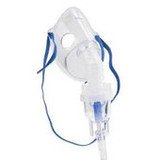A Family's Guide to Caring for Aging Parents


A Family's Guide to Caring for Aging Parents
Even if you want to, the decision to care for an elderly parent at home may simply not be for everyone.
Factors such as having multiple jobs, difficult family dynamics, and the lack of home safety measures can not only make the task more difficult to manage but can also be counterproductive to an aging parent's health. However, if the option is safe for everyone involved, keeping your beloved parent at home can be a rewarding and lesson-filled experience. If you are up to the task, knowing beforehand what to expect and how to prepare for them can help you handle each challenge with grace.
This guide takes you through the essential things you need to take into account when considering in-home care so you can help your beloved lead full, supported lives when they need it the most.
Aging and Caregiving in the U.S., by the Numbers
According to the Population Reference Bureau, the number of Americans aged 65 and above is expected to double from 52 million in 2018 to 95 million by 2060 [PRB]. This increase will bring their population share from 16 percent to 23 percent.
Along with this projection are other trends that may pose a challenge for the future of caregiving:

The Caregiving in the US studies conducted in 2015 identified an estimated 43.5 million adults who have given unpaid care to an adult or child in the prior year. Of all the respondents surveyed, 18.2 percent were caregivers. Around 34.2 million of the respondents cared for adults who were 50 years old or older.
Important Things to Consider
There are multiple aspects of care that you need to consider when caring for an elderly parent. More than just providing them with physical companionship and sustenance, the caregiver must make it their goal to sustain their parent's physical, mental, and emotional wellness.
Activities of Daily Living
Activities of Daily Living (ADLs) refer to the basic tasks of life that help an individual maintain physical and emotional independence. [NCBI]
The inability to perform these tasks usually leads to poor quality of life and unsafe living conditions. In this case, the care of another person or the use of an assistive device becomes necessary.
Helping an aging parent care for their own helps them keep their dignity and independence for as long as possible.
ADLs include:
- Feeding
- Dressing
- Continent care
- Toileting
- Ambulation, or the ability to move from one position to another without help
- Personal hygiene includes bathing, grooming, and maintaining dental hygiene, nail and hair care
Instrumental ADLs:
Instrumental ADLs are still fundamental, although it requires more complex thinking and organizational skills.
- Shopping and transportation
- Managing finances
- House cleaning and housekeeping
- Managing the phone and mail
- Managing medications
- Running errands
- Preparing meals
As tasks get more complicated, seniors are more likely to ask for help.
Living Arrangements
One of the most important considerations when it comes to caring for the elderly is determining where they live. Their environment, companions, and existing living conditions have a profound impact on their overall health.
The following are types of living arrangements viable for seniors.
| Type of arrangement | For who | Where care happens | Who are the caregivers | Services provided |
| Aging at home | aging seniors who are still independent to those who need full ADL assistance | personal residence | family member/s, in-home caregivers | personal companionship, full ADL assistance, skilled healthcare |
| Independent living communities | independent seniors | rentals, trailer homes, residential spaces in communities with other seniors | professional caregiving services | assistive living services such as laundry and transport but no medical support |
| Assisted living communities | seniors who are still independent but may need some ADL assistance | rooms or rentals in a community house | other seniors and caregivers | ADL assistance, group meals, social activities, medication, transport, laundry, exercise, housekeeping |
| Nursing home | seniors with chronic conditions or those in need of rehabilitative care | nursing care facility | other seniors with 24/4 onsite nursing staff | full ADL assistance, meals, medical surveillance and care |
| Living with relatives/family | seniors who need ADL assistance, non-skilled healthcare, and personal companionship | relative/family home | relatives, family | ADL assistance, basic and instrumental |
Finances
The older your parent is, the more vulnerable they are to illness and diseases that can put a strain on their (or your) finances. Straightening out your finances as early as possible may help make things easier for when it becomes necessary.
Here's a list of things to take into account when doing so:
- List all of their accounts and where they are held
- Check their accounts for mistakes
- See to it that all beneficiary designations are updated
- Have their accounts consolidated, if possible
- List down the contact information of their financial adviser
- Sit in during their discussion with their financial adviser
- Check what Social Security benefits they can get
- Try to streamline their bill payments for convenience
- List down all their insurance policies
- Get the contact information of all their insurance advisers
- Sit in on their meetings with insurance advisers
- Review their policies and determine gaps in coverage and adequately prepare for it
- Check what government financial assistance programs they qualify for:
- Check out the benefits per state from AARP [Click here]
- Check out this list of resources from the Eldercare Directory [Click here]
- Check out the official benefits website of the US government [Click here]
As a caregiver, you may explore the possibility of seeking tax relief by claiming your senior parent as a dependent.
It’s important to note that aside from physical issues that may hinder their cognitive ability to handle complex financial tasks, seniors also become vulnerable to scams and exploitation. Taking care of their finances for them helps ensure they are protected.
Legal Documents
Aside from financial concerns, legal concerns are another important matter. Help secure their legal paperwork and documents, especially when these become necessary for obtaining healthcare.
Here are important items to check:
- If they have a will or estate plan and if these reflect their wishes
- If they have an updated power of attorney for finance and healthcare
- if their power of attorney includes a healthcare directive spelling out their preferences for long-term care
Safety
If your parent is taking regular medications, list them all down, including the schedule of their refillers and their contact information.
Keep a handy list of their doctor’s contact numbers as well as those of nearby clinics and hospitals in case of emergencies.
It also pays to learn basic emergency procedures to follow for when it’s necessary.
Injuries that come from falls at home are common among seniors. Look into the possibility of installing some home modifications to make your home safer for your loved one.
Are You Ready?
Deciding to care for an aging parent entails sacrifice. It’s not an easy path to take, especially if you have your career and family to take care of. So don’t feel bad if you ever think twice about it.
However, if it’s a viable option, see to it that you are mentally, physically, emotionally, and financially ready to assume the role of a caregiver. Perhaps talk to your parent about it first. This way, both can reach a mutual agreement that will hopefully make things easier for everyone involved.
Here are questions to ask yourself to determine if you are up to the task:
Do you have the time?
Given all the basic and instrumental ADLs they may need help with, it’s safe to assume that taking care of an elder requires time, if not 24/7 surveillance. Do your other responsibilities allow you to sufficiently attend to their needs without compromising both?
Can you afford it?
According to AARP, an unpaid caregiver who contributes to the care of an older parent spends about $6,954 every year. [AARP] Are you planning to contribute to their care, and if so, how much can you afford? Are you ready for unexpected expenses?
Are you prepared?
Caregiver burnout is real. Not to mention that role reversal may not be very easy for an aging parent to accept. The shift in role dynamics may cause them to push back on you, making the task more difficult.
If you have your own children and family, time due for them may sometimes be sacrificed to attend to the needs of the older parent, leading to feelings of inadequacy and guilt.
Being mentally, emotionally, and physically ready for the task is an absolute requirement.
What kind of in-home care help can you get?
Understanding how much care they need is vital for setting up the kind of in-home care that works best for them and for you.
If you have the finances to do so, if they are eligible for such programs, or if their policies cover it, try looking into in-home care alternatives as support. Here are some ideas:
- buying caregiving supplies in bulk to save
- hiring an in-home caregiver from time to time
- enrolling into a senior companion program in your locality
- considering respite care signing up for meal delivery service
- enrollment in an adult day program for socialization and care
- asking other family members and relatives to help out from time to time
References: Show More
Aging in Place. n.d. “Home Modifications.” Accessed April 17, 2020.
https://www.aginginplace.org/home-modifications/
American Association of Retired Persons. October 1, 2019. “Surprising Out-of-Pocket Costs for Caregivers.” Accessed April 17, 2020.
https://www.aarp.org/caregiving/financial-legal/info-2019/out-of-pocket-costs.html?migration=rdrct
American Association of Retired Persons. n.d. "Your Guide to Public Benefits." Accessed April 17, 2020.
https://www.aarp.org/aarp-foundation/our-work/income/info-2012/public-benefits-guide-senior-assistance1.html
Eldercare Directory. n.d. “Federal Government Programs for Seniors.” Accessed April 17, 2020.
https://www.eldercaredirectory.org/federal.htm
HelpGuide. n.d. “Respite Care.” Accessed April 17, 2020.
https://www.helpguide.org/articles/caregiving/respite-care.htm
LL Medico. January 2, 2020. "Demystifying Your Needs." Accessed April 17, 2020.
https://www.llmedico.com/blog/demystifying-your-needs/
National Alliance for Caregiving. n.d. “Caregiving in America.” Accessed April 17, 2020.
https://www.caregiving.org/research/caregivingusa/
National Center for Biotechnology Information. February 5, 2020. "Activities of Daily Living (ADLs)." Accessed April 17, 2020.
https://www.ncbi.nlm.nih.gov/books/NBK470404/
Population Reference Bureau. n.d. “Fact Sheet: Aging in the United States.” Accessed April 17, 2020
https://www.prb.org/aging-unitedstates-fact-sheet/
Featured Articles
- Best Adult Diapers with Tabs - Top 10 of 2021
- The Top 10 Best Adult Pull Ups for Living Your Best Life
- The 5 Best Women's Adult Diapers to Keep You Confident and Dry
- The Top 5 Best Men's Adult Diapers For Comfort and Dryness
- The Top 5 Best Booster Pads for Feeling Dry and Confident Throughout Your Day
- The Best Adult Cloth Diapers: Reusable And Resilient
- Adult Swim Diapers For Keeping You Safe and Dry






























